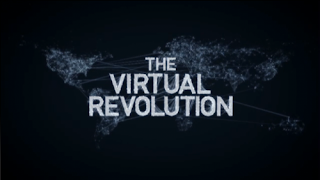- watch a video about the internet and answer some questions
- look at an infographic and do a multiple choice exercise
- practise the language of trends and graphs
1) Discuss
- What do you know about the internet?
- How many people in the world use it now?
- What do you think are are the most popular online activities?
- How much does the internet weigh?
Watch the video and find out.
2) Practise
Now do this True / False exercise on the information in the video clip
What do you think is the most "mind blowing" fact in the clip?
3) Read
Look at this infographic. What does it show?
infographic by http://open-site.org/
Look at the infographic again and do the multiple choice and matching exercises below.
1) Gap-fill
2) Matching exercise. Relative clauses - who / which / that
Printable exercises here
4) Practise
Look at the presentation below.
What language do you know for describing graphs and bar charts?
5) Write (IELTS)
Try this IELTS academic task 1 writing question on computer ownership.
The graphs above give information about computer ownership as a percentage of the population between 2002 and 2010, and by level of education for the years 2002 and 2010.
Summarise the information by selecting and reporting the main features, and make comparisons where relevant.
Write at least 150 words.
http://takeielts.britishcouncil.org/prepare-test/free-sample-tests/writing-sample-test-1-academic/writing-task-1
Go here for excellent advice on how to plan and write an IELTS academic task 1 writing question
Dominic Cole's IELTS and Beyond
http://www.dcielts.com/writing-2/academic-task-1/
More
More IELTS task 1 vocabulary
http://www.goodluckielts.com/ielts-writing-task-1-vocabulary.html
Read
Are you addicted to the internet? Take the test
http://counsellingresource.com/lib/quizzes/net-addiction-testing/internet-addiction/
Will the internet become conscious?
http://www.bbc.com/future/story/20121121-will-the-net-become-conscious
More All Time 10s http://www.youtube.com/user/alltime10s
Why not try this?
http://efllecturer.blogspot.com.es/2012/07/what-is-weight-of-human-race.html













